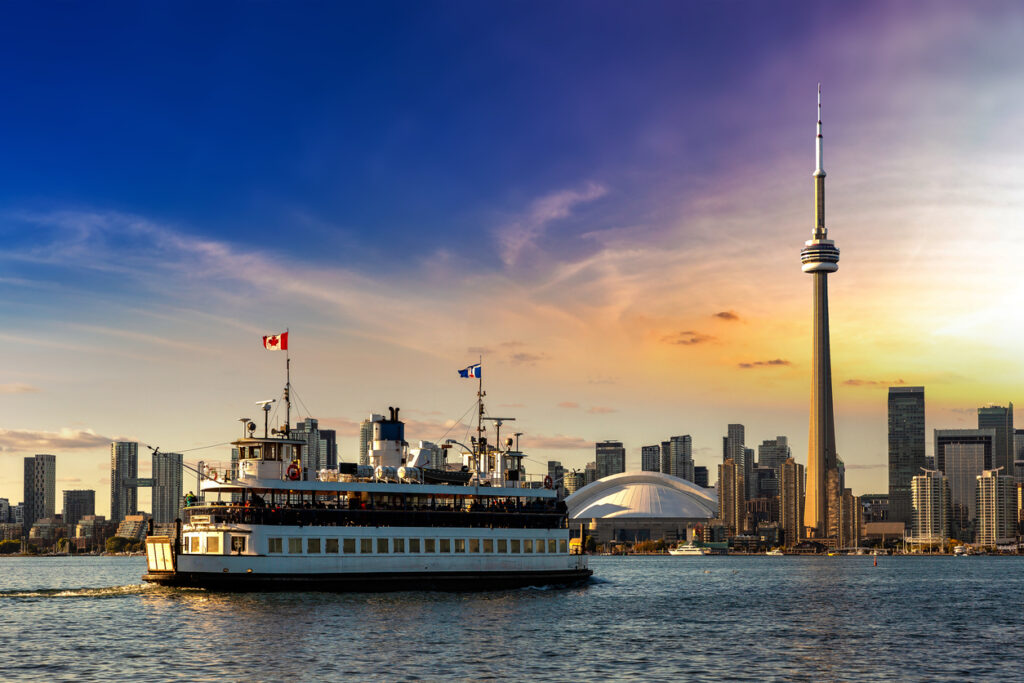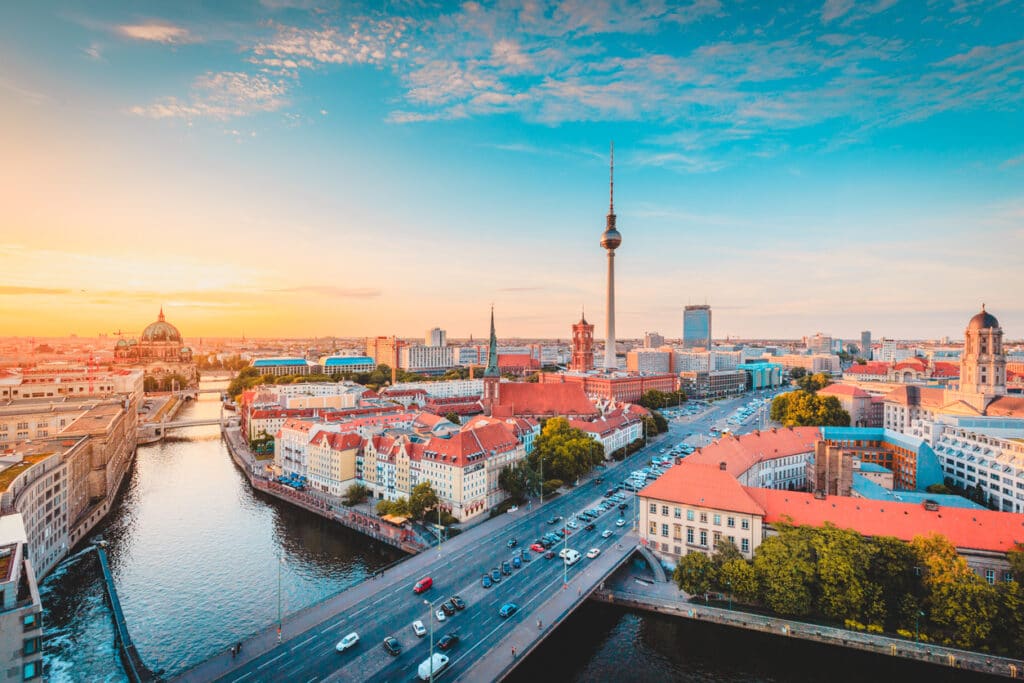As of 2025, an increasing number of Americans are choosing to live in Ghana, drawn by its rich culture, welcoming communities, and historical significance. For Americans living in Ghana, understanding the local customs, legal requirements, and lifestyle adjustments is essential for a smooth transition and fulfilling experience.
Snapshot of expat life in Ghana
- Primary tax forms: Form 1040 (U.S.); Ghanaian tax return
- Tax year: Calendar year (January 1 – December 31)
- Tax deadline: U.S.: June 16, 2025 (automatic extension for expats); Ghana: April 30
- Currency: Ghanaian cedi (GHS)
- Population: Approximately 33 million
- Number of Americans living in Ghana: ~3,000
- Capital city: Accra
- Primary language: English
- Tax treaty: No
- Totalization agreement: No
Americans living in Ghana: Visa types
If you’re an American considering making Ghana your permanent home, understanding the available visa options is crucial. Here are the primary pathways to permanent residency:
Indefinite Residence Permit
Who it’s for: Foreign nationals who have resided in Ghana for a significant period and wish to stay indefinitely.
Overview: This permit allows you to live and work in Ghana without the need for periodic renewals.
Requirements:
- Continuous residence in Ghana for at least 12 months prior to application.
- Accumulated residence of at least five years within the seven years preceding the 12-month period.
- Good character, attested by two Ghanaian citizens of reputable standing.
- No criminal convictions resulting in imprisonment of 12 months or more.
- Demonstrated substantial contribution to Ghana’s development.
- Valid residence permit at the time of application.
Indefinite Residence Permit for Spouses of Ghanaians
Who it’s for: Foreign nationals married to Ghanaian citizens.
Overview: This permit offers a more straightforward path to permanent residency for spouses of Ghanaians.
Requirements:
- Legal marriage to a Ghanaian citizen.
- Residence in Ghana for at least three years.
- Good character, attested by two Ghanaian citizens of reputable standing.
- No criminal convictions resulting in imprisonment of 12 months or more.
- Valid residence permit at the time of application.
Right of Abode
Who it’s for: Individuals of African descent in the diaspora.
Overview: This status grants the right to live and work in Ghana indefinitely.
Requirements:
- Proof of African descent.
- Good character, attested by two Ghanaian citizens of reputable standing.
- No criminal convictions resulting in imprisonment of 12 months or more.
- Demonstrated contribution to Ghana’s development.
Navigating the application process can be complex, so it’s advisable to consult with Ghanaian immigration authorities or legal experts to ensure you meet all requirements and provide the necessary documentation.
How to apply for a Ghanaian visa as a U.S. citizen
Follow these steps to apply for a Ghanaian visa or residency permit as an American citizen. The process and required documents can vary depending on the visa type, but the general application flow is similar.
1. Choose your visa or permit type
Determine which pathway fits your situation: Indefinite Residence Permit, Indefinite Residence Permit for Spouses, or Right of Abode.
2. Gather required documents
- U.S. passport (valid for at least six months)
- Completed application forms (available from the Ghana Immigration Service)
- Passport-sized photos
- Proof of residence and length of stay in Ghana
- Police clearance certificate from both Ghana and the U.S.
- Character references from two reputable Ghanaian citizens
- Marriage certificate (for spouse permits)
- Proof of contribution to Ghana’s development (where required)
- Evidence of African descent (for Right of Abode)
3. Submit your application
File your application in person at the Ghana Immigration Service office or, if outside Ghana, at a Ghanaian embassy or consulate.
4. Pay application fees
Pay the relevant processing fee. Keep your receipt as proof of payment.
5. Attend an interview or provide biometrics
You may be asked to attend an interview or submit fingerprints.
6. Wait for approval
Processing times can take several months. Track your application status with the immigration office.
7. Receive your permit
Once approved, collect your residence permit or Right of Abode certificate and keep it with your passport.
Healthcare options for Americans living in Ghana
Healthcare is an essential consideration for Americans living in Ghana. Understanding how the Ghanaian healthcare system works, exploring available options, and weighing the pros and cons can help you make confident, informed decisions about your well-being abroad.
How the Ghanaian healthcare system works
Ghana operates a mixed healthcare system that includes both public and private providers. The National Health Insurance Scheme (NHIS) is Ghana’s public insurance program, designed to make healthcare more accessible and affordable. Most government hospitals and clinics accept NHIS, but coverage can be limited, especially for specialized treatments. Private facilities generally offer a higher standard of care and shorter wait times, but these come with higher out-of-pocket costs.
Healthcare options for Americans living in Ghana
As an American expat in Ghana, you have several healthcare options:
- Public hospitals and clinics: You can access care at government-run facilities, often at lower cost if you enroll in the NHIS. However, you may experience longer wait times and variable service quality.
- Private hospitals and clinics: Many expats prefer private facilities for their higher standards, modern equipment, and English-speaking staff. These are generally located in major cities like Accra and Kumasi.
- International health insurance: Most Americans living in Ghana opt for international or expat health insurance. This provides access to a wider network of private providers and, in some cases, coverage for medical evacuation if advanced treatment is needed elsewhere.
Pros and cons to healthcare for American expats living in Ghana
Pros:
- English is widely spoken in healthcare settings, making communication easier.
- Private hospitals often offer good quality care and shorter wait times.
- International insurance can provide peace of mind and broader access.
Cons:
- Quality and availability of care can vary, especially outside major cities.
- Public hospitals may have limited resources and longer wait times.
- Out-of-pocket costs for private care or international insurance can be significant.
- Some medications or specialized treatments may not be readily available locally.
By understanding your options and planning ahead, you can navigate healthcare in Ghana with greater confidence and security.
Cost of living for American expats living in Ghana
Adjusting to the cost of living in Ghana is one of the first big transitions you’ll face as an American expat. While some expenses are noticeably lower than back home, others might surprise you—especially when it comes to imported goods or housing in expat-friendly neighborhoods. Here’s how some everyday costs compare between Ghana (specifically Accra, the capital) and the United States (using a mid-sized U.S. city for reference):
| Expense Category | Accra, Ghana (USD) | U.S. (USD) | Notes/Comparison |
| Groceries | $200–$350/month | $400–$600/month | Local produce is affordable, but imported foods are pricier. |
| Housing (1BR apt, city center) | $700–$1,200/month | $1,500–$2,500/month | Expat-standard apartments cost less than major U.S. cities. |
| Public transport | $20–$40/month | $70–$120/month | Tro-tros and buses are cheap; taxis cost more, but still less than U.S. cabs. |
| Mobile phone plan (basic) | $10–$20/month | $40–$60/month | Local plans are much cheaper, though data speeds may vary. |
Pros
- Day-to-day living costs (like local food and public transportation) are significantly lower than in most U.S. cities.
- Affordable domestic help and childcare can ease your transition and free up time for work or travel.
- If you’re flexible with housing, you can find good deals outside the main expat areas.
Cons
- Imported goods—especially familiar American brands—can be expensive or hard to find.
- Expat-standard housing in desirable neighborhoods comes at a premium.
- Private schooling, if you have kids, may be costly depending on your choice.
- Infrastructure (like internet speeds or reliable utilities) may not always match what you’re used to in the U.S.
By planning your budget and adjusting expectations, you can enjoy a comfortable lifestyle in Ghana without overspending. And remember, we’re here to help you navigate the financial side of your new life abroad.
Where do American expats tend to live in Ghana?
While you’ll find Americans across Ghana, most expats settle in a few key areas—especially in and around the capital:
- Accra (Cantonments, Labone, and Airport Residential Area): These neighborhoods in Accra are the heart of expat life, known for their international schools, embassies, and a range of Western-style amenities. You’ll find plenty of social events, restaurants, and shops catering to the international community.
- East Legon: Popular with families and professionals, East Legon offers a quieter, upscale atmosphere with modern housing, international restaurants, and easy access to schools and shopping centers.
- Tema: Located just outside Accra, Tema is a port city that attracts expats working in shipping, manufacturing, and logistics. The city has a growing expat community and offers a more laid-back pace compared to central Accra.
- Kumasi: The second-largest city in Ghana, Kumasi draws Americans working in education, NGOs, and development projects. It’s less international than Accra, but you’ll still find a supportive expat network and a lower cost of living.
Tax implications for Americans living in Ghana
As Americans living in Ghana, you face a unique set of tax responsibilities—both to the IRS back home and possibly to Ghanaian tax authorities. Sorting through these requirements can feel overwhelming, but with the right information, you can stay compliant and avoid stressful surprises. Let’s break down what you need to know about your tax obligations as an American expat in Ghana.
American expat tax obligations
Even while living in Ghana, you’re still required to file an annual U.S. tax return with the IRS. Citizenship-based taxation means the U.S. expects you to report your worldwide income, no matter where you live or work.
- You must file IRS Form 1040 each year, just as if you were living stateside.
- This includes reporting all income—salary, self-employment, rental income, and even interest from Ghanaian banks.
- The deadlines are a bit more flexible for expats: you get an automatic two-month extension (to June 15), but any taxes owed are still due by April 15 to avoid interest.
💡 Pro Tip:
Many expats think they don’t need to file if they owe nothing. That’s a common misconception—filing is still required, even if your tax bill is zero.
Ghanaian taxes
Living and working in Ghana means you may also have local tax obligations. Ghana taxes residents on their worldwide income and nonresidents on Ghana-sourced income.
- If you spend 183 days or more in Ghana in a year, you’re generally considered a tax resident.
- Ghanaian income tax rates are progressive, topping out at 30%.
- Your employer typically withholds taxes, but if you’re self-employed or have other income, you may need to file a Ghanaian tax return.
- There’s no totalization agreement between the U.S. and Ghana, so social security contributions may be required in both countries.
Foreign Earned Income Exclusion (FEIE)
The Foreign Earned Income Exclusion is a valuable benefit for Americans abroad, potentially excluding up to $130,000 (for tax year 2025; indexed annually) of foreign-earned income from your U.S. tax return.
- To qualify, you must pass either the Physical Presence Test (330 days in a foreign country during any 12-month period) or the Bona Fide Residence Test (a full tax year as a resident of Ghana).
- Only earned income (wages, self-employment) qualifies—not investment or rental income.
- You claim the FEIE using IRS Form 2555.
💡 Pro Tip:
The FEIE isn’t automatic—you must claim it each year, and you can’t exclude income taxed by Ghana unless you meet the strict residency or presence requirements.
Foreign Tax Credit (FTC)
If you pay income tax to Ghana, you may be able to offset your U.S. tax bill using the Foreign Tax Credit.
- This credit allows you to reduce your U.S. tax liability dollar-for-dollar for income taxes paid to Ghana.
- You claim it on IRS Form 1116.
- The credit is especially useful if your Ghanaian tax rate is higher than your effective U.S. tax rate—you may end up owing little (or nothing) to the IRS.
💡 Pro Tip:
You can’t “double dip”—you must choose between the FEIE and Foreign Tax Credit for the same income, but sometimes splitting between the two is most beneficial.
Tax treaty
Currently, there is no income tax treaty between the U.S. and Ghana. This means:
- There’s no agreement to prevent double taxation or clarify which country gets the first right to tax certain types of income.
- You’ll need to rely on the Foreign Earned Income Exclusion and Foreign Tax Credit to avoid being taxed twice on the same income.
This lack of a treaty makes careful planning even more important. We’re here to help you navigate these gray areas.
Reporting foreign bank accounts (FBAR & FATCA)
If you have financial accounts in Ghana, you may need to report them to U.S. authorities:
- FBAR (FinCEN Form 114): If the total value of all your foreign accounts exceeds $10,000 at any time during the year, you must file an FBAR—even if the account is joint or for a business.
- FATCA (Form 8938): If your foreign assets exceed $200,000 at year-end (for single filers living abroad), you must file Form 8938 with your tax return.
- Penalties for not reporting are severe, so it’s crucial to stay on top of these requirements.
Social Security
Your U.S. Social Security situation can get complicated while working in Ghana:
- You generally must continue to pay U.S. Social Security taxes if employed by a U.S. company, but not if you’re working for a Ghanaian employer.
- Ghana has its own social security system, and contributions may be mandatory if you’re considered a Ghanaian employee.
- There is no totalization agreement between Ghana and the U.S., so you could end up contributing to both systems—without the ability to combine credits for future benefits.
Navigating taxes as an American living in Ghana isn’t always straightforward, but with a clear understanding of your responsibilities—and expert support—you can stay compliant and make the most of your expat experience. If you have more questions or need tailored advice, we’re always here to help.Ready to take the next step? Don’t let uncertainty hold you back—reach out to get expert support and make confident, informed decisions. Your journey starts now!
Frequently Asked Questions
-
Do Americans living in Ghana still have to pay U.S. taxes?
Yes, as an American living in Ghana, you’re required to file a U.S. tax return every year, reporting your worldwide income to the IRS. This applies even if you also pay income tax in Ghana or if your U.S. tax bill comes out to zero. Staying compliant with U.S. expat tax laws helps avoid penalties and keeps your finances on track.
-
How does the cost of living in Ghana compare to the U.S., and are there tax benefits for expats?
Many expats find that the cost of living in Ghana can be lower than in major U.S. cities, but certain imported goods and services may actually cost more. While moving abroad doesn’t exempt you from U.S. taxes, you may qualify for the Foreign Earned Income Exclusion (FEIE) or the Foreign Tax Credit, which can help reduce your U.S. tax burden as an American expat in Ghana.
-
What reporting requirements do Americans living in Ghana have for foreign bank accounts?
If the total value of your Ghanaian (and other foreign) bank accounts exceeds $10,000 at any point in the year, you must file an FBAR (Foreign Bank Account Report). Additionally, if your foreign assets are over $200,000 at year-end, you’ll need to file FATCA Form 8938. These rules apply even if the accounts are joint or used for business.
-
Are there ways for Americans in Ghana to avoid double taxation?
While there is no tax treaty between Ghana and the U.S., you may be able to use the Foreign Tax Credit to offset U.S. taxes paid on income already taxed in Ghana. The FEIE is another option for excluding a portion of your foreign-earned income. Careful planning is key to making sure you don’t pay more than necessary.
-
Do Americans working in Ghana contribute to both U.S. and Ghanaian Social Security?
If you work for a Ghanaian employer, you’ll likely pay into Ghana’s social security system. If you’re self-employed or working for a U.S. company, you may still owe U.S. Social Security (self-employment) taxes. Because there’s no totalization agreement between the U.S. and Ghana, it’s possible to pay into both systems without the ability to combine benefits, so knowing your employment status and obligations is essential.

 Connect on LinkedIn
Connect on LinkedIn

